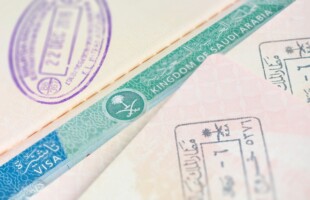Recruitment agencies continue to push back
In July 2015, Nepal began its ‘free visa, free ticket’ policy, whereby, potential migrants paid no more than NPR20,000 in processing fees, and the employer bore the costs of tickets and visa.
The move by Nepal government has received severe pushback from recruitment agents. Towards the end of last year, migration figures show a dip in recruitment of Nepalese workers in Malaysia. This was a cause for concern, and provided fodder for those lobbying against the new policy.
The regulation applies to six countries besides Malaysia: Qatar, Saudi Arabia, the UAE, Kuwait, Bahrain and Oman.
The Nepal Association of Foreign Employment Agencies (NEFEA) argue that reduced demand from Malaysia could have serious repercussions on the country’s economy. The association continues to push back against the free visa, free ticket regulation even though recent statistics show that Nepal has been able to meet only 36.5% of the total job demand in the first half of the current fiscal year.
Data of the Department of Foreign Employment, a government body that provides frontline service to aspirant migrants, show that it received a total of 481,480 job demands in the first five months of the current fiscal year. But during that period, only 174,926 Nepalis actually took overseas job, which is barely 36.5 percent of the total job demand of the labour receiving countries from across the globe. The numbers also show that Nepal was able to supply barely 40 percent workforce of the total demand despite receiving over a million job demands each year for the last three years.
Qatar is the second largest receiving country of Nepalese migrant workers. In the last five months, it has placed a job demand for 288,544 workers.
As per Qatari laws, it’s illegal to charge the worker any recruitment fees, and the cost of visas and tickets is to be borne by the employer. Until July 2015, Nepal allowed recruitment agents to charge up to NPR80,000 ($740) as processing fees. However, in practice, fees could go much higher because of informal fees paid to sub-agents and others in the chain of supply.
Activists on the ground welcome the move, but feel it has been implemented in a hurry and without the commitment of all the countries the new regulation covers. Hence, there is a fall in demand from countries who do not have strict recruitment regulations and enforcement.
Further, the powerful NEFEA still wields great control in who is placed where, and at what cost. Nilambar Badal, a returnee migrant and activist, says the scheme though commendable was implemented in haste, without building resources for implementation in Nepal.
“Earlier workers paid the high fees, and received a receipt for it. When there were issues after job placement, that invoice would give them some access to justice. Now, they are still paying high costs, but receive the invoice for the government stipulated of NPR10,000 or 20,000. They come back after encountering problems, there is no way of receiving a refund.”
The solution of course is not to continue with high recruitment fees, but to put in place strong checkpoints to ensure workers are not exploited, both in Nepal and in countries of employment.
Countries like Qatar have a zero-fee policy, but workers are not surveyed on arrival to confirm that this has been implemented and hold agents accountable.




